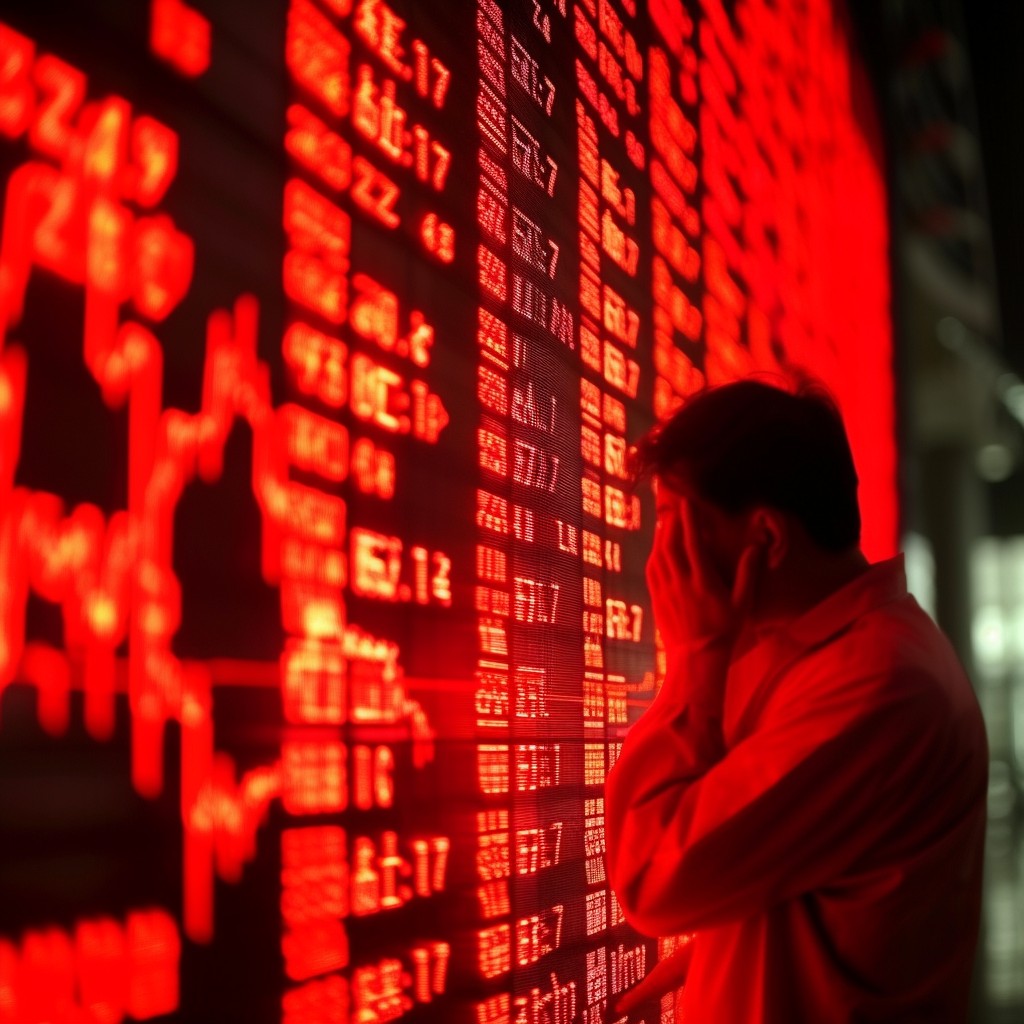The recent slump in Asian markets has emerged as a striking focal point, casting a shadow over the region’s economic landscape. This downturn has been notably influenced by signals of robust growth in the United States, leaving many analysts and investors questioning the factors that have led to this unexpected downturn.
Asian bull rally halts after 6 days of impressive trade
On Friday, Asian stocks declined as investors discounted Intel Corp.’s lackluster results and optimism over China’s rescue measures diminished.
Mainland China and Hong Kong stocks declined after the most significant three-day upswing since 2022. In reducing its main Chinese stock indices targets, Morgan Stanley cited the nation’s debt, demographic, and deflation issues as impediments to additional equity gains.
Asian traders in the afternoon saw an extension of the selling of Hong Kong equities, with WuXi Biologics Cayman Inc. and WuXi Apptec among the companies that led losses. Some US legislators have introduced a bill that, according to traders, would prohibit WuXi AppTec, a Chinese medical technology company, and its subsidiaries on the grounds of their ties to the Chinese Communist Party. WuXi Biologics fell as much as 28%, while WuXi AppTec fell a record 32%.
A key indicator of inflation decelerated more abruptly in Asian markets than anticipated in January, from 2.4% in December to 1.6%, causing the Nikkei 225 in Tokyo to close at 35,751.07, a 1.3% decline.
As a consequence of weaker price increases, the Bank of Japan is relieved of the burden of reducing its ultra-lax monetary policy, which has poured enormous quantities of cash into the markets. The inflation target set by the central bank is 2%.
As a result of a series of Asian government initiatives to bolster share prices and the real estate industry, Chinese markets ended their winning streak. Friday, during a briefing, Commerce Minister Wang Wentao stated that China is confronted with a more severe and convoluted external trade environment this year.
Additional Asian market data shows the Shanghai Composite exhibited minimal movement, increasing 0.1% to 2,910.22, whereas Hong Kong’s Hang Seng declined 1.6% to 15,954.86.
At the heart of Asian markets to 2,478.56, the Kospi in South Korea increased 0.3%. In observance of a national holiday, Australian markets were closed.
United States market surge
Thursday on Wall Street, the S&P 500 set a new daily high of 4,894.16 points, an increase of 0.4%. Both the Dow Jones Industrial Average and the Nasdaq composite increased by 0.2% to 15,510.50 and 0.6%, respectively, to 38,049.13.
IBM aided the market’s 9.5% advance by releasing a profit statement for its most recent quarter that exceeded the expectations of analysts. While four out of every five equities in the S&P 500 experienced an upward trend, Tesla’s decline of 12.1% contained the market’s gains.
As the US stock market reaches a record high, many investors are currently concerned about the rally’s remaining strength, which commenced a year ago. Bloomberg Intelligence data dating back to 1950 reveals that whenever the S&P 500 has risen from a bear market to new heights, returns in the subsequent six and twelve months have been significantly above average.
The primary focus of Wall Street was a report that demonstrated the sustained progress of the U.S. economy, which contradicted the predictions made last year that an impending recession was imminent due to elevated interest rates.
The final three months of 2023 witnessed an annual growth rate of 3.3% for the economy, as per an initial assessment by the United States government.
American Airlines’ most recent quarter profit was significantly higher than what analysts had anticipated, resulting in a 10.3% increase in the stock. Humana, which was down 11.7% on Wall Street, declined subsequent to the insurer’s unexpectedly unfavorable results for the conclusion of 2023.
According to energy trading, Benchmark U.S. crude fell 50 cents to $76.86 per barrel in electronic trading on the New York Mercantile Exchange. The international benchmark, Brent crude, decreased by 54 cents to $81.42 per barrel.
The value of the U.S. dollar increased by one Japanese yen, from 147.64 to 147.85, in currency trading. The value of the euro became $1.0817 from $1.0848.
A Step-By-Step System To Launching Your Web3 Career and Landing High-Paying Crypto Jobs in 90 Days.
 Asian
Asian